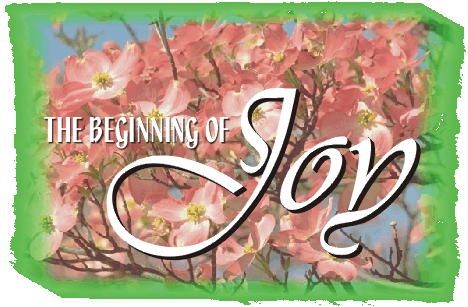
Project
Restore >> Library >> Time for Joy contents >> article 1: The Beginning of Joy ...

Project
Restore >> Library >> Time for Joy contents >> article 1: The Beginning of Joy ...

"In the beginning God created the
|
| After resting upon the Seventh day, God sanctified it, or set it apart, as a day of rest for man. Following the example of the Creator, man was to rest upon this sacred day, that as he should look upon the heavens and the earth, he might reflect upon God's great work of creation. |
The great Jehovah had laid the foundations of the earth; He had dressed the whole world in the garb of beauty and had filled it with things useful to man; He had created all the wonders of the land and of the sea. In six days the great work of creation had been accomplished. And God "rested on the seventh day from all His work which He had made. And God blessed the seventh day, and sanctified it: because that in it He had rested from all His work which God created and made." God looked with satisfaction upon the work of His hands. All was perfect, worthy of its divine Author, and He rested, not as one weary, but as well pleased with the fruits of His wisdom and goodness and the manifestations of His glory.
After resting upon the seventh day, God sanctified it, or set it apart, as a day of rest for man. Following the example of the Creator, man was to rest upon this sacred day, that as he should look upon the heavens and the earth, he might reflect upon God's great work of creation; and that as he should behold the evidences of God's wisdom and goodness, his heart might be filled with love and reverence for his Maker.
In Eden, God set up the memorial of His work of creation, in placing His blessing upon the seventh day. The Sabbath was committed to Adam, the father and representative of the whole human family. Its observance was to be an act of grateful acknowledgment, on the part of all who should dwell upon the earth, that God was their Creator and their rightful Sovereign; that they were the work of His hands and the subjects of His authority. Thus the in stitution was wholly commemorative, and given to all mankind. There was nothing in it shadowy or of restricted application to any people.
God saw that a Sabbath was essential for man, even in Paradise. He needed to lay aside his own interests and pursuits for one day of the seven, that he might more fully contemplate the works of God and meditate upon His power and goodness. He needed a Sabbath to remind him more vividly of God and to awaken gratitude because all that he enjoyed and possessed came from the beneficent hand of the Creator.
God designs that the Sabbath shall direct the minds of men to the contemplation of His created works. Nature speaks to their senses, declaring that there is a living God, the Creator, the Supreme Ruler of all. "The heavens declare the glory of God; and the firmament showeth His handiwork. Day unto day uttereth speech, and night unto night showeth knowledge." Psalm 19:1, 2. The beauty that clothes the earth is token of God's love. We may be hold it in the everlasting hills, in the lofty trees, in the opening buds and the delicate flowers. All speak to us of God. The Sabbath, ever pointing to Him who made them all, bids men open the great book of nature and trace therein the wisdom, the power, and the love of the Creator.
| Table of Contents |
Next Page |
Home | Library | Bible Studies |